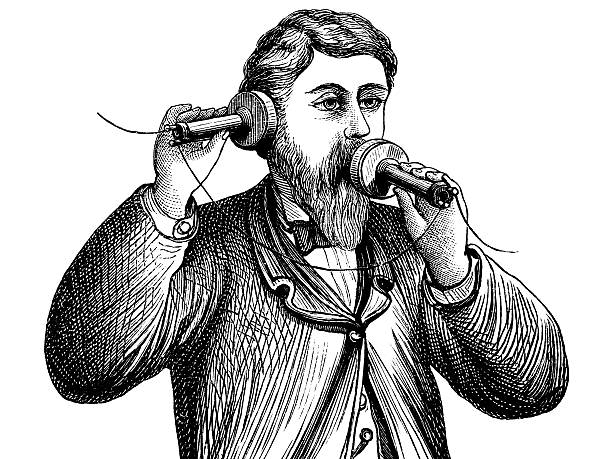Essay on Alexander Graham Bell: Inventor of Telephone
Last Updated At: 4 Aug 2025
8 min read

Table of Contents
- Long Essay: The Life and Legacy of Alexander Graham Bell
- Short Essay 1: Alexander Graham Bell’s Impact on the Modern
- Short Essay 2: Lessons from Bell’s Life for Young Learners (
- Short Essay 3: Why Alexander Graham Bell Still Inspires Youn
- Creative Writing at PlanetSpark: Unleash the Author in Your
- Frequently Asked Questions
This blog offers a comprehensive exploration of Alexander Graham Bell’s journey from his childhood and early inventions to the creation of the telephone and his enduring impact on modern communication

Long Essay: The Life and Legacy of Alexander Graham Bell
Early Life and Education of Alexander Graham Bell
Alexander Graham Bell was born on March 3, 1847, in Edinburgh, Scotland. His father, Alexander Melville Bell, was a renowned phonetician, and his grandfather was a professor of elocution. It’s no surprise then that Bell grew up immersed in the science of sound. From an early age, Bell showed a keen interest in speech and mechanics. At the age of 12, he invented a simple dehusking machine for his friend’s mill, an early sign of his inventive genius.
Bell’s education was non-traditional. He was homeschooled and encouraged to explore subjects that intrigued him. Later, he attended the University of Edinburgh and University College London. But his studies were often interrupted due to health issues and personal tragedies, including the deaths of his brothers from tuberculosis.
Unlock your child’s genius with PlanetSpark Creative Writing Classes. Inspire young minds to think, write, and innovate like Bell!

A Personal Motivation: The Roots of His Invention
One of the biggest inspirations behind Bell’s work was his mother and wife, both of whom were deaf. This personal connection to hearing loss drove him to understand sound more deeply. Bell started working with deaf students and developed techniques to teach them speech. He even opened a school for the deaf in Boston.
His fascination with the human voice led him to study the mechanics of speech and experiment with ways to transmit it electrically. During this time, Bell was working on a device called the "harmonic telegraph" that could send multiple messages on a single wire, an invention that laid the groundwork for the telephone.
The Historic Invention of the Telephone
In 1876, Bell achieved what was once thought impossible. He successfully transmitted voice using electrical signals. The first words ever spoken over the telephone were: “Mr. Watson, come here, I want to see you.” These were directed to his assistant, Thomas Watson.
Bell had filed a patent for his invention just hours before another inventor, Elisha Gray, who was working on a similar device. The timing of the patent secured Bell’s place in history as the official inventor of the telephone.
The invention was showcased at the Centennial Exhibition in Philadelphia, where it captivated figures like Emperor Dom Pedro II of Brazil and even Thomas Edison. The telephone quickly became the centerpiece of modern communication.
Help your child find their voice! With PlanetSpark’s creative writing and public speaking programs, every idea has the power to be heard. Book A Free Demo
Later Innovations and Contributions
Alexander Graham Bell didn’t stop with the telephone. He went on to work on various other scientific projects. He co-founded the American Telephone and Telegraph Company (AT&T) in 1885, which would go on to become a major force in global communications.
Beyond telephony, Bell conducted research in aeronautics, optical telecommunications, and even hydrofoils. He invented the photophone, a device that could transmit sound using light beams, considered a precursor to fiber-optic communication.
He also founded the journal Science and supported education for the deaf throughout his life.
Legacy and Recognition
Alexander Graham Bell passed away on August 2, 1922. At his funeral, every telephone in North America was silenced for one minute to honor the man who revolutionized communication.
His name is immortalized in institutions, awards, and educational programs around the world. More importantly, his life story serves as a reminder that empathy, curiosity, and relentless innovation can change the world.
Short Essay 1: Alexander Graham Bell’s Impact on the Modern World (300 words)
Alexander Graham Bell’s invention of the telephone didn’t just revolutionise how people communicate; it reshaped economies, societies, and human relationships. Before the telephone, communication was limited to letters and telegrams. But Bell’s device made real-time, voice-based conversations possible across vast distances.
His invention led to the creation of a new industry, telecommunications, which has since evolved into the backbone of the digital age. From smartphones to video conferencing, today’s innovations owe much to Bell’s initial spark of genius.
Bell’s commitment to improving communication for the deaf also helped establish new standards in education and technology. His impact continues to influence fields ranging from linguistics to robotics.
Let your child understand the power of ideas. Build future-ready communication skills with PlanetSpark’s expert-led sessions. Book A Free Trial Today!
Short Essay 2: Lessons from Bell’s Life for Young Learners (300 words)
Alexander Graham Bell’s journey offers several lessons for today’s children. First, curiosity can lead to life-changing discoveries. Bell was always asking questions and exploring new ideas. Whether it was inventing a machine at age 12 or experimenting with sound waves, his drive to learn never stopped.
Second, he turned personal challenges into powerful motivations. His close relationships with deaf individuals gave his work deep meaning and purpose. He didn’t see obstacles, he saw opportunities to help.
Lastly, Bell’s story teaches us that innovation isn’t always about overnight success. It’s about persistence, patience, and passion. His inventions came after years of trial and error.
Fuel your child’s curiosity and grit with PlanetSpark’s Creative Writing and Innovation-focused programs.

Short Essay 3: Why Alexander Graham Bell Still Inspires Young Innovators (300 words)
Even in today’s fast-paced digital world, the legacy of Alexander Graham Bell continues to inspire young learners and aspiring inventors. What makes Bell so influential isn’t just the invention of the telephone, the mindset he carried throughout his life.
Bell wasn’t afraid to think differently. He questioned the status quo and pursued ideas that others believed were impossible. His relentless pursuit of understanding how sound travels led to the invention that connected humanity in ways never imagined before. Young minds can take away an important message from his journey: daring to dream big is the first step toward innovation.
Another remarkable quality of Bell’s character was his empathy. His motivation stemmed from helping the deaf community, especially his mother and wife. His inventions were never just about fame, they were driven by the desire to solve real problems.
For young learners, Bell’s story serves as a powerful reminder that meaningful success often begins with asking, "How can I help?" His path also shows that failures and setbacks are just stepping stones toward greater achievements.
Conclusion: The Man Who Made the World Talk
Alexander Graham Bell was not just an inventor; he was a change-maker. His legacy is a testament to what’s possible when passion meets purpose. By understanding his journey, children can draw inspiration to follow their own path, whether in science, writing, or creative arts.
Turn your child’s potential into power. Join PlanetSpark’s Creative Writing Programs and watch them grow into tomorrow’s innovators and leaders.
Creative Writing at PlanetSpark: Unleash the Author in Your Child
Did the story of Alexander Graham Bell spark curiosity in your child? That’s exactly the kind of imagination PlanetSpark loves to nurture!
Our Creative Writing Program empowers kids to turn thoughts into powerful stories, essays, speeches, and articles, just like the one you read above. Whether it’s inventing characters, narrating real-life stories, or describing visionary ideas like Bell’s, we guide young writers from blank pages to brilliance.
Why Parents Choose PlanetSpark’s Creative Writing Classes:
1:1 Personal Mentorship by expert teachers
Structured Writing Modules including story writing, descriptive writing, and informative writing
Weekly Writing Prompts & Competitions to spark imagination
Real-time Feedback & Progress Reports
Confidence Building through Public Sharing on Sparkline – our student showcase platform
Designed for Curious Minds:
From budding writers to hesitant thinkers, our program helps every child:
Organize their ideas clearly
Add creativity to essays and speeches
Improve grammar, vocabulary, and sentence fluency
Build storytelling skills that shine in school and beyond
Let Your Child Write Like a Future Innovator!
Alexander Graham Bell imagined a world where people could talk across distances. What can your child imagine?
👉 Book a FREE Creative Writing Trial Class at PlanetSpark
Let’s start building tomorrow’s authors - one story at a time.
Read more about essay writing for kids
Frequently Asked Questions
Q1. Who invented the telephone and when?
A: Alexander Graham Bell invented the telephone in 1876. He was awarded the first US patent for the invention of the telephone.
Q2. What is Alexander Graham Bell most famous for?
A: Bell is most famous for inventing the telephone and revolutionizing communication. He was also an educator, innovator, and scientist.
Q3. How did Alexander Graham Bell invent the telephone?
A: Bell experimented with sound transmission and electrical signals. His work on the harmonic telegraph led to the invention of the telephone.
Q4. What is taught in a creative writing class for kids?
A: Kids learn storytelling, essay writing, descriptive writing, and poetry. Classes also focus on vocabulary building, structure, and imagination.
Q5. At what age can my child join creative writing classes?
A: Children as young as 6 years old can join. PlanetSpark’s classes are tailored for ages 6 to 14, with age-specific content and mentorship.
Q6. How do creative writing classes help with school performance?
A: They improve grammar, sentence fluency, and idea clarity essential skills for scoring well in English, essays, and school projects.
Personalized Communication Report
Record a video to get a AI generated personalized communication report for your child
Select Learner's Class

Hi There, want to try these
tips for your child with
LIVE with our expert coach?
Let's check your child's
English fluency
